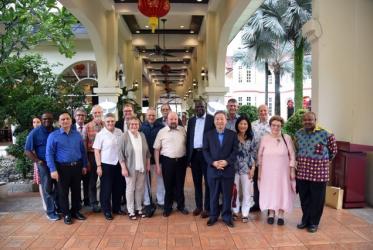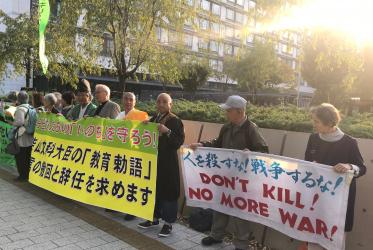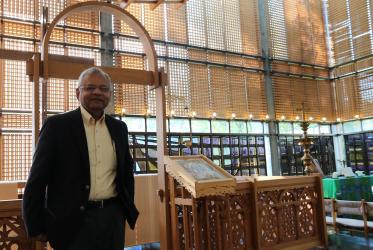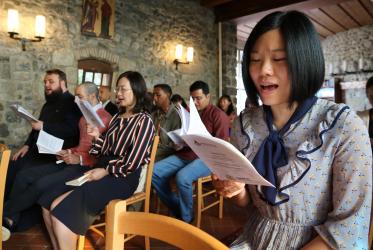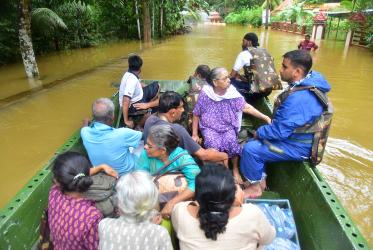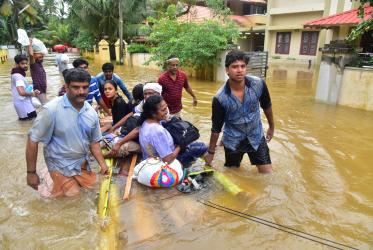Displaying 61 - 80 of 204
Peace is common denominator of all major religions
05 March 2019
WCC pilgrimage turns its eyes to Asia
04 March 2019
All pilgrim routes lead to COP24
11 December 2018
Roundtable for Peace on the Korean Peninsula convenes in Atlanta
14 November 2018
WCC general secretary sends greetings on Diwali
06 November 2018
WCC “receives with joy” verdict which resolves case of Asia Bibi
01 November 2018
Paving the way for ecumenical studies, learning English in Bossey
24 September 2018
New students welcomed at WCC Bossey Ecumenical Institute
13 September 2018



